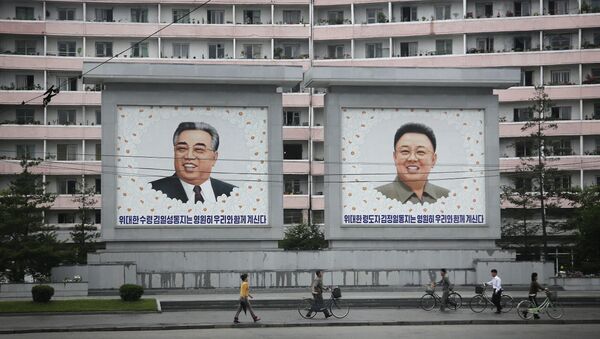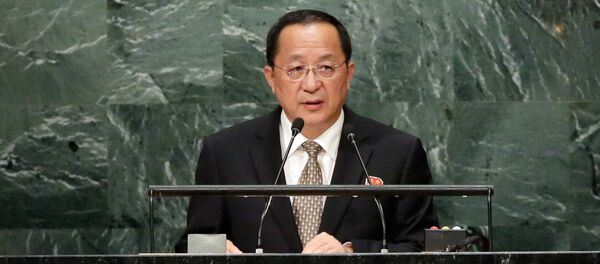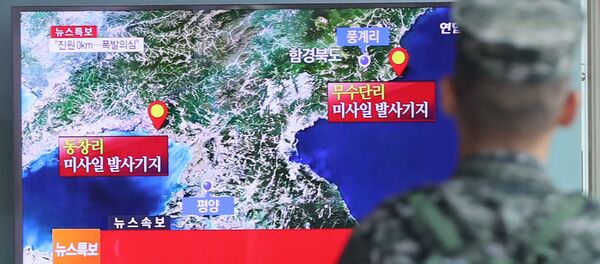Speaking at the UN General Assembly on Friday, North Korea's foreign minister Ri Yong Ho said the move "can even ignite the outbreak of a nuclear war."
He added that the sanctions have also failed to force Pyongyang to abandon its nuclear program.
“Perhaps we shouldn’t have imposed those sanctions, maybe we should have sanctions against military exports to North Korea, but not economic ones. Perhaps we should have engaged with North Korea by using a different kind of argument,” Bluth noted.
He added that nobody wants to take military action against North Korea. “They just want to do something and sanctions are the only instrument they have at the moment.”
“But the problem is that [the sanctions] are driving Pyongyang more and more into the arms of China, make it more isolated and, therefore, reduce the impact other countries may have on North Korea,” Christoph Bluth emphasized.
When asked whether some people in the West were actually trying to engage North Korea, to start a business dialogue with it, he said that it is the kind of policy [the West] had ten years ago, but because of the failure to prevent nuclear testing in North Korea, “the only hope now is for a long-term change in North Korea’s political system and society, so they are trying to engage. The European countries are trying to engage on a cultural level with educational projects and student exchanges thus increasing interaction between North Koreans and the outside world.”
When asked if China would be ready to use any pressure against Pyongyang now that the US was going to deploy its THAAD antimissile defense system in South Korea, Bluth said that because of the rising tensions in the South China Sea Beijing has been less cooperative on North Korea than in the past.
He added that the military deployments and tests are largely symbolic as nobody can afford to start a war against the United States and the US has abandoned the idea of striking North Korea because of the estimates of civilian casualties North Korea could inflict on the South.
“So I don’t think there is a real risk of a military confrontation because despite all these large military concentrations in the region, no one is really going to start a war,” Christoph Bluth said in conclusion.




